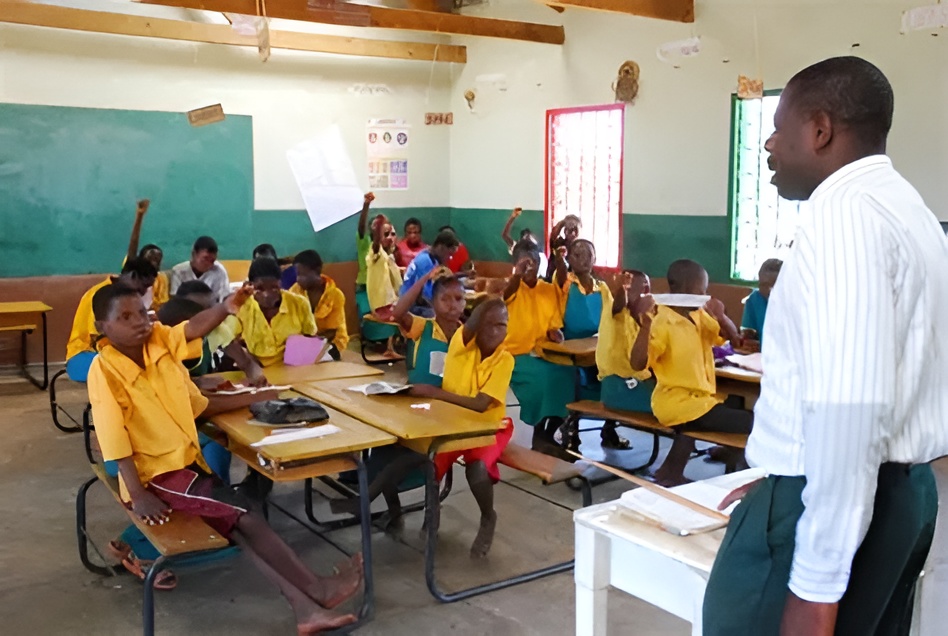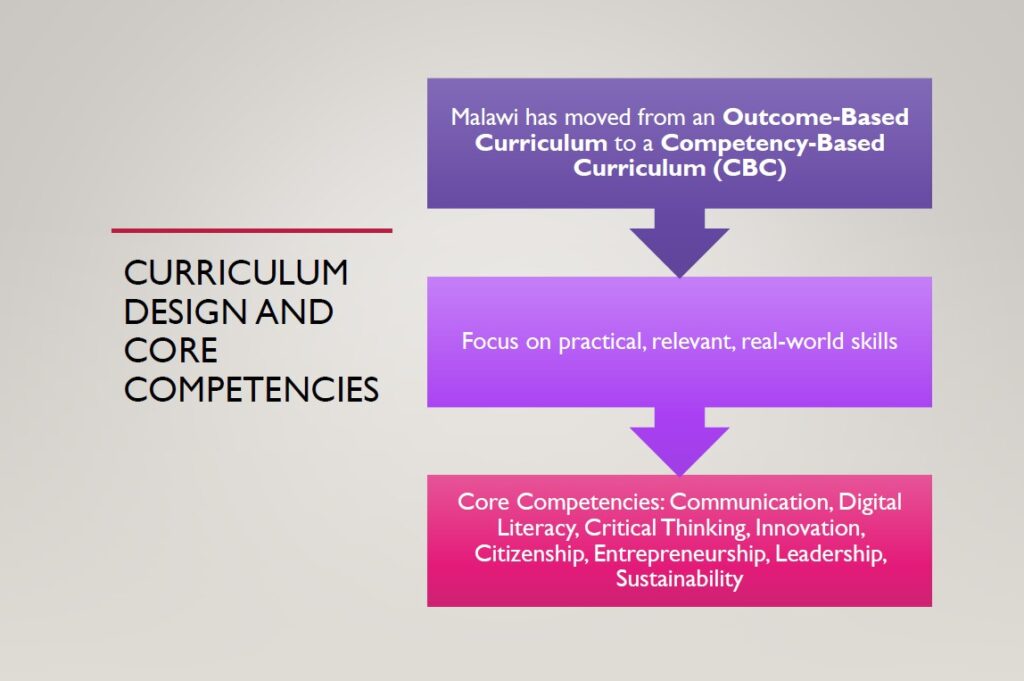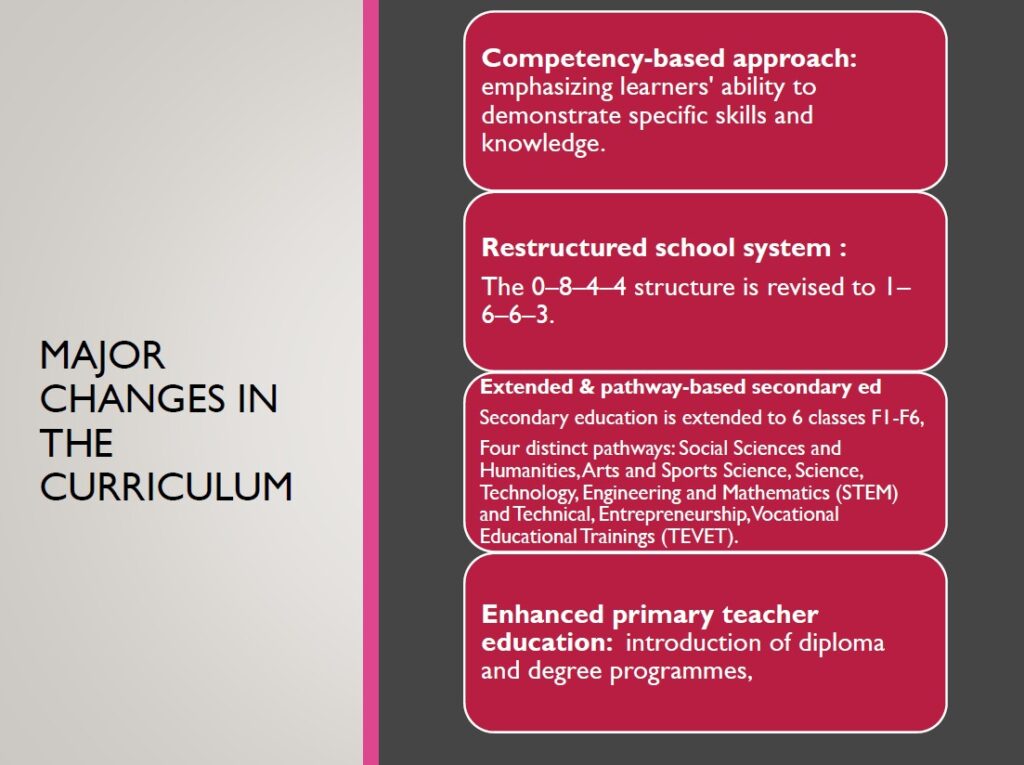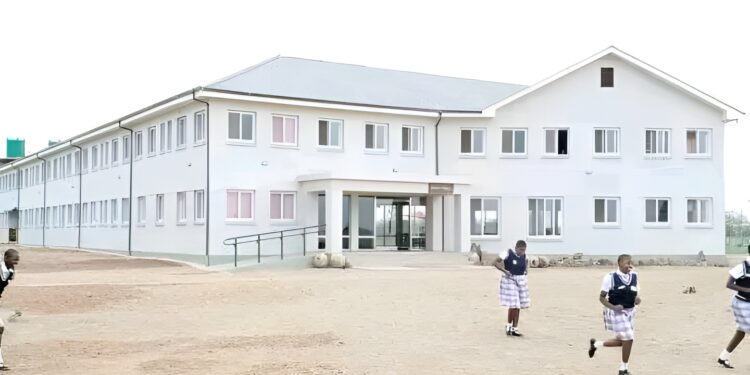The Ministry of Education, through the Malawi Institute of Education (MIE), has proposed sweeping reforms to Malawi’s primary and secondary school curriculum, a move hailed as one of the most progressive steps in shaping the country’s education and future workforce.
Once implemented, learners will transition into a new structure that aligns more closely with global standards and equips students with practical, real-world skills.
Under the revised framework, the traditional 0–8–4–4 structure will be replaced with a streamlined 1–6–6–3 system. This includes a Pre-School (P Class), six years of primary education divided into Junior and Senior Classes, six years of secondary education split into three tiers, and a minimum of three years at tertiary level.

Key highlights of the new structure include:
- Early Foundation: The current Standard 1 will now be designated as Pre-School, ensuring that children start formal education at age five with stronger preparatory grounding.
- Primary Reorganization: Learners will progress through Grades 1 to 6, with national examinations introduced at Grade 6, marking a more objective assessment of foundational knowledge.
- Extended Secondary Education: Secondary schooling has been expanded from four to six years, creating Lower Secondary (Forms 1–2), Upper Secondary (Forms 3–4), and Advanced Level (Forms 5–6).
- Multiple Pathways: Secondary students will have access to specialized learning streams, Social Sciences & Humanities, STEM, Arts & Sports Science, and Technical & Vocational (TEVET), allowing them to tailor their studies to talents and career aspirations.
According to a presentation of the outline of the proposed curriculum and structure, MIE indicated that the new system moves away from rote-learning and outcome-based models towards a Competency-Based Curriculum (CBC). This approach emphasizes core skills such as critical thinking, innovation, digital literacy, communication, citizenship, leadership, and entrepreneurship.
The proposal also highlights that education goals have been broadened beyond academics. Learners will be expected to develop competencies in wealth creation, environmental stewardship, practical agriculture, and mindset change, addressing Malawi’s socio-economic realities while preparing students for global competitiveness.
In a statement on its official Facebook page, the Ministry of Basic and Secondary Education confirmed the proposed changes to the curriculum but indicated that a final decision has not been made to roll it out.
“The Ministry, through the Malawi Institute of Education is still working redesigning the school curriculum which will rollout once all preparatory activities are completed, but not in September, 2025,” reads the statement.


The Ministry acknowledged that currently there is a noticeable gap when children go directly from home to Standard 1, and the pre-primary class will help ensure that children who pass through this stage are better prepared.
“This initiative aligns with Malawi’s broader School Readiness Strategy, which seeks to improve access to quality early childhood education and ensure smoother transitions from early childhood to primary school,” says the Ministry.
Education experts say the reforms could be a game-changer. By introducing Advanced Level studies (Form 5–6) within Malawi’s secondary system, the country is aligning with regional and international standards such as A-levels in the UK and IBDP pathways. This is expected to reduce the skills mismatch between graduates and the job market, while improving Malawi’s standing in higher education partnerships globally.
Furthermore, the inclusion of foreign languages such as French, Kiswahili, Arabic, Mandarin, and Portuguese, alongside digital and technical subjects, positions Malawian learners to thrive in an interconnected world.
The restructuring represents more than just administrative change; it is a deliberate investment in the future. By prioritizing creativity, resilience, lifelong learning, and unity in diversity, the Ministry is signaling a vision of education that is not only about producing job seekers but also job creators.
“This is about empowering the next generation with the skills, values, and mindset needed to drive Malawi into a knowledge-based, innovative, and prosperous economy,” reads part of the MIE presentation.
As the 2025/2026 school year approaches, stakeholders agree that while challenges in implementation remain — including teacher capacity, resources, and infrastructure, this reform could mark the beginning of a new era for Malawi’s education system.








